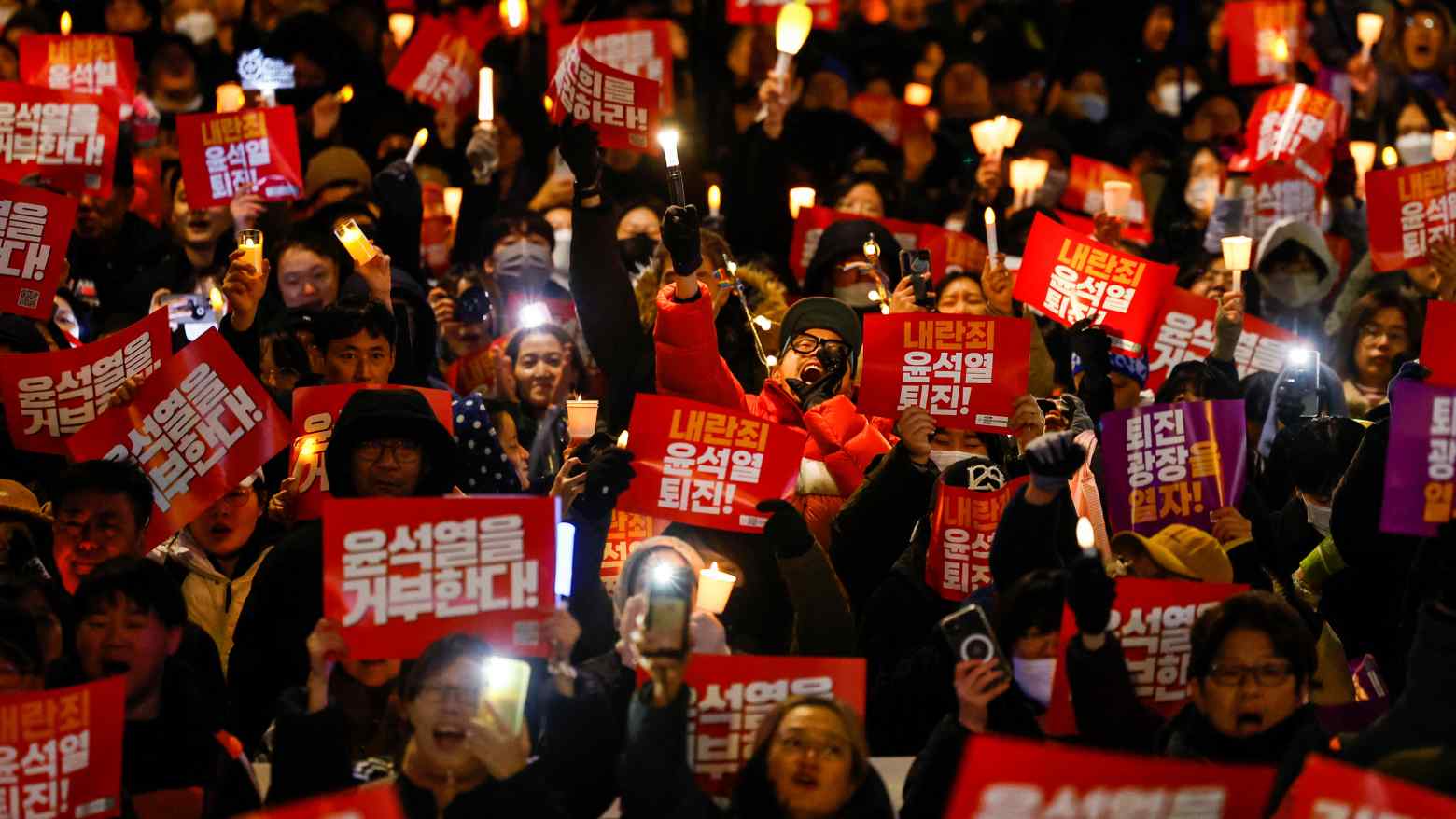
In December 2024, the political turmoil in South Korea caused widespread concern in global markets. President Yoon Seok-yoon's declaration of emergency martial law was reversed in just six hours, but its implications for financial markets in South Korea and around the world were profound and complex.
South Korean President Yoon Seok-yoon declared a nationwide emergency martial law on the night of December 3 due to a political crisis, a surprise decision that quickly triggered a global uproar. As Asia's fourth-largest economy, South Korea's financial markets are closely linked to global markets, and any political instability is quickly transmitted to international markets. Yoon's decision not only threw South Korean politics into turmoil, but also caused significant volatility in global financial markets. The Korean stock market plunged as the won exchange rate plunged. Investor concerns about the political situation in South Korea led to a large outflow of funds, further adding to the market volatility.
From the perspective of economic fundamentals, the implementation of martial law has caused a considerable impact on the South Korean economy. The production and operation activities of enterprises have been disrupted, investor confidence has been hit, and the relationship between supply and demand in the market is unbalanced. South Korea's KOSPI index fell 1.29 percent after the declaration of martial law, while the KOSDAQ index closed down 1.97 percent. The South Korean currency has also experienced wild swings, hitting a two-year low at one point, reflecting investors' strong concerns about the currency's direction. This series of market reaction is undoubtedly a direct reflection of the uncertainty of the political situation in South Korea.
Although martial law was lifted six hours later, stability did not immediately return to South Korea's financial markets. The declaration of martial law triggered panic and expectations of uncertainty among investors, leading to irrational declines in the market. South Korean stocks jumped to open lower even after the lifting of martial law, falling more than 2 percent at one point, with export-oriented and high-tech companies leading the market lower. This shows that the political turmoil has had a profound and long-lasting impact on South Korea's financial markets.
In response to the market turmoil brought on by the crisis, South Korea's central bank and financial regulators moved quickly, issuing a joint statement saying they would take all necessary measures to maintain financial stability. South Korea's Ministry of Strategy and Finance also said it was ready to provide unlimited liquidity to the financial market if necessary. The Financial Services Commission announced that a 10 trillion won stock market stabilization fund will be put into operation at any time. These measures have eased market nerves to some extent, but it will take time for investors to restore confidence in the Korean economy and financial markets.
In the long run, the political turmoil in South Korea will have a profound impact on the international investment environment. Moody's and other international rating agencies have warned that South Korea's international credit rating could be affected if the political situation is not resolved quickly. This series of political and economic turmoil is bound to lead to a potential stagnation of economic activity, hit market confidence, and may lead to the outflow of foreign capital, which will affect the Korean stock market and currency market.
It is worth noting that the budget dispute in South Korea is also one of the important backgrounds of the political crisis. The budget impasse has added to uncertainty about South Korea's economy and concerns about its ability to implement fiscal policy. It also further heightened investor concerns about the outlook for the South Korean economy, leading to capital outflows and financial market volatility.
However, in the face of the political crisis, the South Korean government is not sitting idly by. The Bank of Korea held an emergency meeting, decided to increase short-term liquidity measures, and conducted a large-scale repo operation on the same day to calm the bond market. These measures have stabilized the financial market to a certain extent and provided some confidence support for investors.
Despite a series of rescue measures by the South Korean government and central bank, it will take time for investors to restore confidence in the country's financial markets. Political uncertainty will continue to weigh on South Korea's economy and financial markets. In the future, the South Korean government needs to properly handle political differences, maintain social stability, and at the same time strengthen economic construction and enhance market confidence. Only in this way can we remain invincible in the future competition and continue to contribute to the development of the world economy.
Overall, the pressure that South Korea's political crisis is putting on the stock market and currency is clear. Although the government and the central bank have taken a series of measures to stabilize the market, it will take time for investor confidence to recover. In the future, the South Korean government needs to work harder to maintain political stability and strengthen economic construction in order to restore investor confidence in the South Korean economy and financial markets.

According to Bloomberg, a recent in-depth interview with Michael Dehal, senior portfolio manager at Raymond James' Dehal Investment Partnership, was released, focusing on the economic development prospects and potential risks of Canada and the United States in 2026.
According to Bloomberg, a recent in-depth interview with Mi…
TikTok Shop, the global e-commerce platform under ByteDance…
As a severe flu outbreak sweeps across the United States, w…
Recently, US Treasury Secretary Mnuchin publicly stated tha…
At the dawn of 2026, the United States launched a military …
From the stiff step when it first debuted in 2022 to demons…